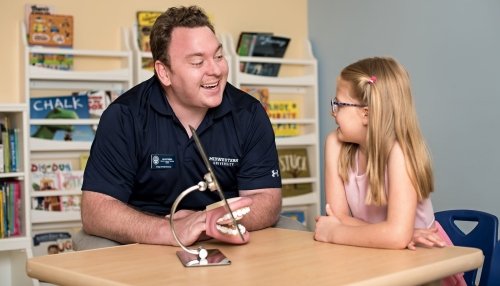A child begins communicating the moment they are born through the variations in their cries. Babies cry differently when they are hungry compared to when they want to be picked up. As the child grows and develops, the child will begin making cooing and gooing sounds before babbling and saying their first true word around the time of their birthday. Typical developing children go from playing with sounds, or “baby talk”, to producing sounds similar to the adults around them. (See the American Speech-Language-Hearing Association for a full list of speech developmental milestones in typical developing children).
Some children may not progress or develop more mature speech sound patterns or they may have errors in their speech sound production, which may also be called an articulation delay or disorder. Examples of common articulation errors in young children include, “I want a wabbit” for “I want a rabbit.” Or, “I want a tootie” for “I want a cookie.”
Speech Language Pathologists (SLPs) are trained to determine if a child has typical developing speech sound skills, or determine if they have delayed or unusual variations in their speech sound production. SLPs evaluate a child’s speech using formal measures, such as articulation tests, as well as informal measures, such as spontaneous or conversational speech samples. Based on the findings of these assessments, SLPs can carefully craft an individually designed treatment plan to teach correct speech sound production using developmentally appropriate intervention strategies.
The Speech-Language Institute at Midwestern University offers assessment and treatment of articulation delays and disorders. Professors with expertise in articulation work with graduate student clinicians to help each child reach their fullest potential. In addition, our team also views the child’s caregivers and family members as central members of the team. We will work closely with all stakeholders to promote carryover of the treatment strategies outside of the therapy sessions.

